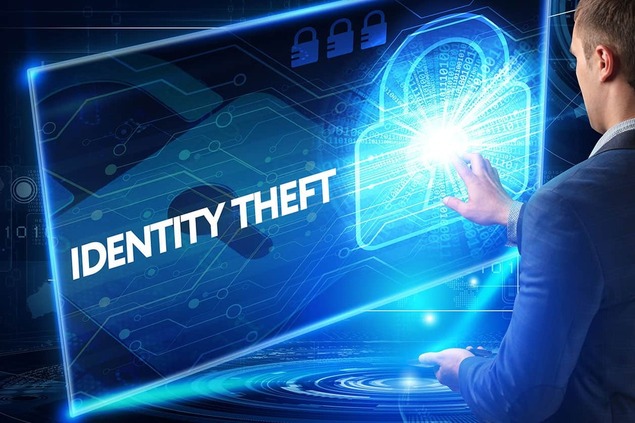
Losing money or property to scams and fraud can be devastating. Our resources can help you prevent, recognize, and report scams and fraud.
Identity theft and identity fraud are terms used to refer to all types of crime in which someone wrongfully obtains and uses another person’s personal data in some way that involves fraud or deception, typically for economic gain.
How Identity Theft is committed
Prevention of Identity Theft
What to Do if You Are the Victim of Identity Theft
Those persons who have been the victim of identity theft should take the following measures. When dealing with authorities and financial institutions, you should keep a log of all conversations, including dates, names and phone numbers. Confirm conversations in writing. Send correspondence by certified mail (return receipt requested). Keep copies of all letters and documents
Report the crime to the appropriate local law enforcement agency. Provide them with as much documented evidence as possible. Obtain a copy of the police report. Obtain the telephone number of your fraud investigator and provide it to creditors and others who require verification of your case.
Immediately contact the fraud units of the three credit reporting companies –
Experian
P.O Box 2104
Allen, Texas 75013 – 2104
Fraud number – (800) 525 – 7195
Web site: https://www.experian.com
Equifax
P.O. Box 105873
Atlanta, Georgia 30348
Fraud Number (800) 525- 6285
Web site: https://www.equifax.com
Trans Union Corporation
P.O. Box 34012
Fullerton, California 92834
Fraud number –(800) 680- 7289
Web site: https://www.tuc.com
Contact all creditors immediately with and inform them that your information has been used fraudulently – by phone and in writing. Obtain replacement cards with new account numbers for those that have been fraudulently used. Ask that old accounts be processed as “account closed at consumers request”. Carefully monitor your mail and credit card bills for evidence of new fraudulent activity. Report such fraudulent activity immediately.
If you have had checks stolen or bank accounts set up fraudulently, report it to the check verification companies. Put stop payments on any outstanding checks you are unsure of. Cancel your checking and savings accounts and obtain new account numbers.
If you’re ATM card has been stolen or compromised, obtain a new card, account number and password. Do not use your old password. When creating a password, don’t use common numbers like the last four digits of your Social Security number or your birth date.
Social Security number and misuse. Call the Social Security Administration to report fraudulent use of your Social Security number. As a last resort, you might want to change your Social Security number. The SSA will only change it if you fit their fraud victim criteria. Order a copy of your Social Security Earnings and Benefit Statement and check it for accuracy.
If you have a passport, notify the passport office in writing to be on the lookout for anyone ordering a new passport fraudulently.
Identity theft and identity fraud are terms used to refer to all types of crime in which someone wrongfully obtains and uses another person’s personal data in some way that involves fraud or deception, typically for economic gain.
How Identity Theft is committed
- In public places, criminals may engage in shoulder surfing watching you from a nearby location as you punch in your telephone calling card number or credit card number.
- Some criminals engage in “dumpster diving” – going through your garbage cans or a commercial dumpster or trash bin – to obtain copies of your checks, credit card or bank statements, or other records that typically bear your name, address or even your telephone number.
- Criminals may simply steal your wallet or purse.
- If you have received applications for pre- approved credit cards in the mail, but discard them without shredding the enclosed materials, criminals may retrieve them and then try to activate the cards for their use without your knowledge.
- Criminals may open up a new credit card account, using your name, date of birth and Social Security number. When they use the credit card and don’t pay the bills, the delinquent account is reported on your credit report.
- They may establish a cellular phone service in your name.
- They may open a bank account in your name and write bad checks on that account.
- Criminals may go through bank statements, credit card statements, pre- approved credit card applications, etc. from your mailbox.
Prevention of Identity Theft
- Limit the amount of confidential or personal information you carry in your wallet or purse. Do not carry bank account numbers, personal identification numbers, passports, birth certificates or Social Security cards.
- Avoid carrying more blank checks than you actually need. A criminal can fraudulently used these sensitive information often pre- printed on your checks (address, bank account number, and telephone number). Do not have your Social Security Number pre- printed on your checks.
- Keep good backup information about your accounts, in case your wallet or purse is lost or stolen.
- When you go on vacation, take a long list of toll- free telephone numbers for your banking and credit card companies – not your card numbers – and keep the list in a safe place other than your wallet or purse.
- Consider canceling any credit cards you don’t really need or haven’t used in six months.
- Never provide personal information (Social Security number, credit card number, address, etc.) over the telephone unless you initiate the call and are familiar or acquainted with the business.
- Shred all credit card applications you receive in the mail and don’t use.
- Review your credit card bills and you’re checking statements as soon as they are received, to ensure that no fraudulent activity has taken place.
- Obtain a copy of your credit report at least once a year to check for errors.
- Be careful at ATMs, “Shoulder Surfers” can obtain your “Pin Number” and get access to your accounts.
- Do not put checks in the mail from your home mailbox. Drop them off at a U.S. mailbox or the U.S. Post Office. Mail theft is common. It is easy to change the name of the recipient on the check with an acid wash.
- When you order new credit cards in the mail, or your previous ones have expired, watch the calendar to make sure you get the card within the appropriate time. If it is not received by a certain date, call the credit card company immediately and find out if the card was sent. Find out if a change of address was filed if you don’t receive the card or billing statement.
- Obtain a P.O. Box, or locked mailbox, if you can.
- Do not put your telephone number on your checks.
- Consider making your telephone number an unlisted number or just use an initial instead of your full first name in the directory.
- Obtain credit cards and business cards with your picture on them whenever possible.
- If someone you don’t know calls you on the telephone and offers you the chance to receive a “major credit card, a prize, or other valuable item, but ask you for personal information such as your Social Security number, credit card number, or mother’s maiden name, ask them to send you a written application form, if they will not do it, tell them you are not interested and hang up.
- When you are traveling, have your mail held at your local post office, or ask someone you know well and trust to collect and to hold your mail while you are away.
- If you’re monthly credit card or bank statements do not arrive at the normal time of the month, call the financial institution or credit card company immediately and ask about it.
What to Do if You Are the Victim of Identity Theft
Those persons who have been the victim of identity theft should take the following measures. When dealing with authorities and financial institutions, you should keep a log of all conversations, including dates, names and phone numbers. Confirm conversations in writing. Send correspondence by certified mail (return receipt requested). Keep copies of all letters and documents
Report the crime to the appropriate local law enforcement agency. Provide them with as much documented evidence as possible. Obtain a copy of the police report. Obtain the telephone number of your fraud investigator and provide it to creditors and others who require verification of your case.
Immediately contact the fraud units of the three credit reporting companies –
Experian
P.O Box 2104
Allen, Texas 75013 – 2104
Fraud number – (800) 525 – 7195
Web site: https://www.experian.com
Equifax
P.O. Box 105873
Atlanta, Georgia 30348
Fraud Number (800) 525- 6285
Web site: https://www.equifax.com
Trans Union Corporation
P.O. Box 34012
Fullerton, California 92834
Fraud number –(800) 680- 7289
Web site: https://www.tuc.com
Contact all creditors immediately with and inform them that your information has been used fraudulently – by phone and in writing. Obtain replacement cards with new account numbers for those that have been fraudulently used. Ask that old accounts be processed as “account closed at consumers request”. Carefully monitor your mail and credit card bills for evidence of new fraudulent activity. Report such fraudulent activity immediately.
If you have had checks stolen or bank accounts set up fraudulently, report it to the check verification companies. Put stop payments on any outstanding checks you are unsure of. Cancel your checking and savings accounts and obtain new account numbers.
If you’re ATM card has been stolen or compromised, obtain a new card, account number and password. Do not use your old password. When creating a password, don’t use common numbers like the last four digits of your Social Security number or your birth date.
Social Security number and misuse. Call the Social Security Administration to report fraudulent use of your Social Security number. As a last resort, you might want to change your Social Security number. The SSA will only change it if you fit their fraud victim criteria. Order a copy of your Social Security Earnings and Benefit Statement and check it for accuracy.
If you have a passport, notify the passport office in writing to be on the lookout for anyone ordering a new passport fraudulently.
